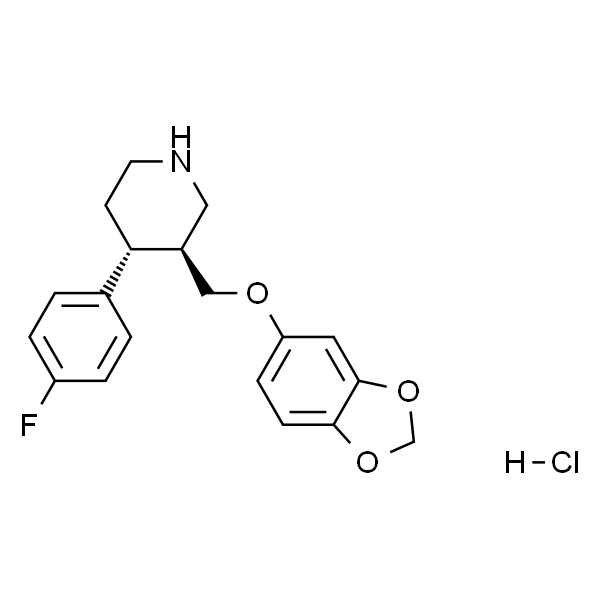CAS:78246-49-8
Storage:Powder:-20℃,2 years;Insolvent(Mother Liquid):-20℃,6 months;-80℃,1 year
Purity:HPLC≥98%
Appearance:White to off-white Solid

Examples of using this product(for reference only)
In Vivo:
Rat(Five-week-old male Sprague-Dawley rats,1.8 mg/kg/day Paroxetine,Gavage):
All rats were kept under a 12 h light/dark cycle at a constant temperature and humidity with ad libitum access to food and water. Rats were allowed to acclimate to housing conditions for a week prior to further treatments. After acclimation, rats were treated with CUMS once a day and lasted for 7 weeks. From 4th to 7th week of CUMS, rats were administrated to L. casei (8×108 CFU/kg/day), paroxetine (1.8 mg/kg/day, a well-known antidepressant purchased from Beijing Solarbio Science &Technology Co.,Ltd., Beijing, China), or equal volume of normal saline by gavage 1 h before they were treated with CUMS, designated L. casei group, positive control group, and CUMS group, respectively. Each rat treated with CUMS was housed separately. Rats only with gavage administration of normal saline without CUMS treatment were used as normal control, and every 5 rats were housed together.
Reference:
Gu F, Wu Y, Liu Y, Dou M, Jiang Y, Liang H . Lactobacillus casei improves depression-like behavior in chronic unpredictable mild stress-induced rats by the BDNF-TrkB signal pathway and the intestinal microbiota. Food Funct. 2020 Jul 1;11(7):6148-6157. doi: 10.1039/d0fo00373e. Epub 2020 Jun 24. PMID: 32578646.

 English
English
 中文
中文

 Manual Download
Manual Download


